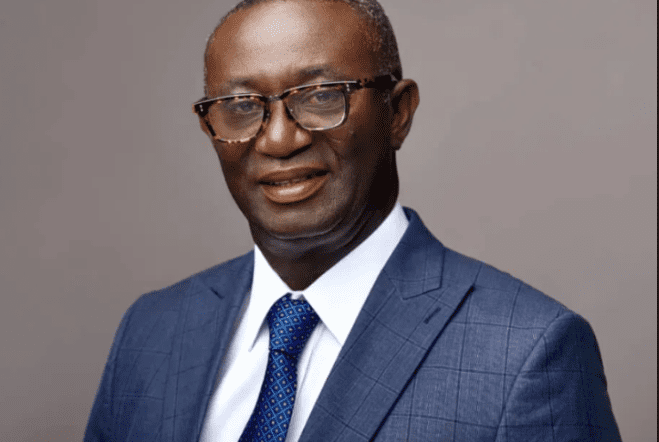adverts
Outgoing Member of Parliament for Asante Akim North, Andy Appiah-Kubi, has publicly criticised President Nana Akufo-Addo’s leadership style, attributing the New Patriotic Party’s (NPP) heavy loss in the December 7, 2024, general elections to what he described as a “recalcitrant” approach.
The NPP, despite a strong campaign from its presidential candidate, Dr. Mahamudu Bawumia, faced a decisive defeat, with opposition candidate John Dramani Mahama of the National Democratic Congress (NDC) emerging victorious and leading the party to secure a parliamentary majority.
Appiah-Kubi, who also lost his parliamentary seat to an independent candidate, made these comments in an interview on JoyNews’ Upfront, where he discussed the internal dynamics within the NPP and the leadership decisions that he believes led to the party’s downfall.
adverts
One of the central points of Appiah-Kubi’s criticism was President Akufo-Addo’s refusal to listen to calls from within his own party for significant leadership changes, particularly the removal of Finance Minister Ken Ofori-Atta.
Appiah-Kubi and over 96 Members of Parliament (MPs) had urged the President to dismiss Ofori-Atta, citing concerns over the country’s economic situation and public discontent.
However, Akufo-Addo resisted these demands, a decision that Appiah-Kubi believes had a direct negative impact on the NPP’s electoral prospects.
“The blame will go by extension because he [Akufo-Addo] refused to listen to us,” Appiah-Kubi said. He emphasised that, despite the fact that multiple MPs had raised concerns and presented a unified resolution, the president remained unmoved. “Even when we saw the reality and tried to communicate it to him, he wouldn’t accept anything of the sort,” he added.
According to Appiah-Kubi, this refusal to acknowledge party members’ concerns led to a deep sense of frustration within the NPP, which was evident in the electoral results.
Appiah-Kubi described Akufo-Addo as “too recalcitrant,” referring to the president’s rigid stance and unwillingness to adapt to changing political realities.
He argued that this inflexibility made it difficult for the party to unify behind Dr. Bawumia’s presidential campaign.
“He didn’t do enough to help Dr. Bawumia because if you won’t listen to your own MPs… It was not just one person speaking. We were advocating with the support of more than 96 Members of Parliament,” Appiah-Kubi explained.
The situation became more dire as the election approached, with the NPP facing growing internal divisions. Appiah-Kubi pointed out that the failure to act on the concerns raised by MPs sent a message of neglect and poor leadership within the party, further exacerbating the difficulties in Dr. Bawumia’s campaign.
The former MP also questioned President Akufo-Addo’s overall judgement, suggesting that his refusal to listen to party members and act on their collective resolution showed a lack of responsiveness to legitimate concerns.
“It’s not as though one person was saying something unwarranted. We had written our resolution, and because we didn’t have other opportunities, we wanted him to hear us. Yet, he refused to listen to any of us. That’s why we can blame him for this outcome,” Appiah-Kubi stated.
The resolution, which was signed by more than 96 MPs, called for significant changes within the government, including the removal of key figures like Ofori-Atta, in an effort to address growing public dissatisfaction.
However, Akufo-Addo’s inaction on the matter, Appiah-Kubi argues, left the party divided and ultimately led to the electoral defeat.
The NPP’s loss in the 2024 elections has ignited a wider conversation within the party about the need for leadership change and reforms. Following the defeat, many party members have expressed concerns over the direction the NPP is heading and the leadership challenges that were evident during the election campaign.
Appiah-Kubi’s comments reflect the frustrations of many within the NPP who feel that the leadership failed to act on critical issues that could have turned the tide in the party’s favor. His loss of the parliamentary seat to an independent candidate further underscores the internal fractures that plagued the NPP during the election period.
As John Dramani Mahama and the NDC prepare for a new government, the NPP faces a difficult path of rebuilding. The party will need to address the leadership issues raised by Appiah-Kubi and others if it hopes to regain public trust and restore unity within its ranks.
With Akufo-Addo’s presidency drawing to a close in January 2025, the NPP is now at a crossroads.
The party must decide whether to continue under its current leadership or embrace a new direction that addresses the concerns raised by internal critics like Appiah-Kubi. Moving forward, the NPP’s ability to address these leadership issues will be critical in shaping its future and its ability to remain a strong contender in Ghanaian politics.


